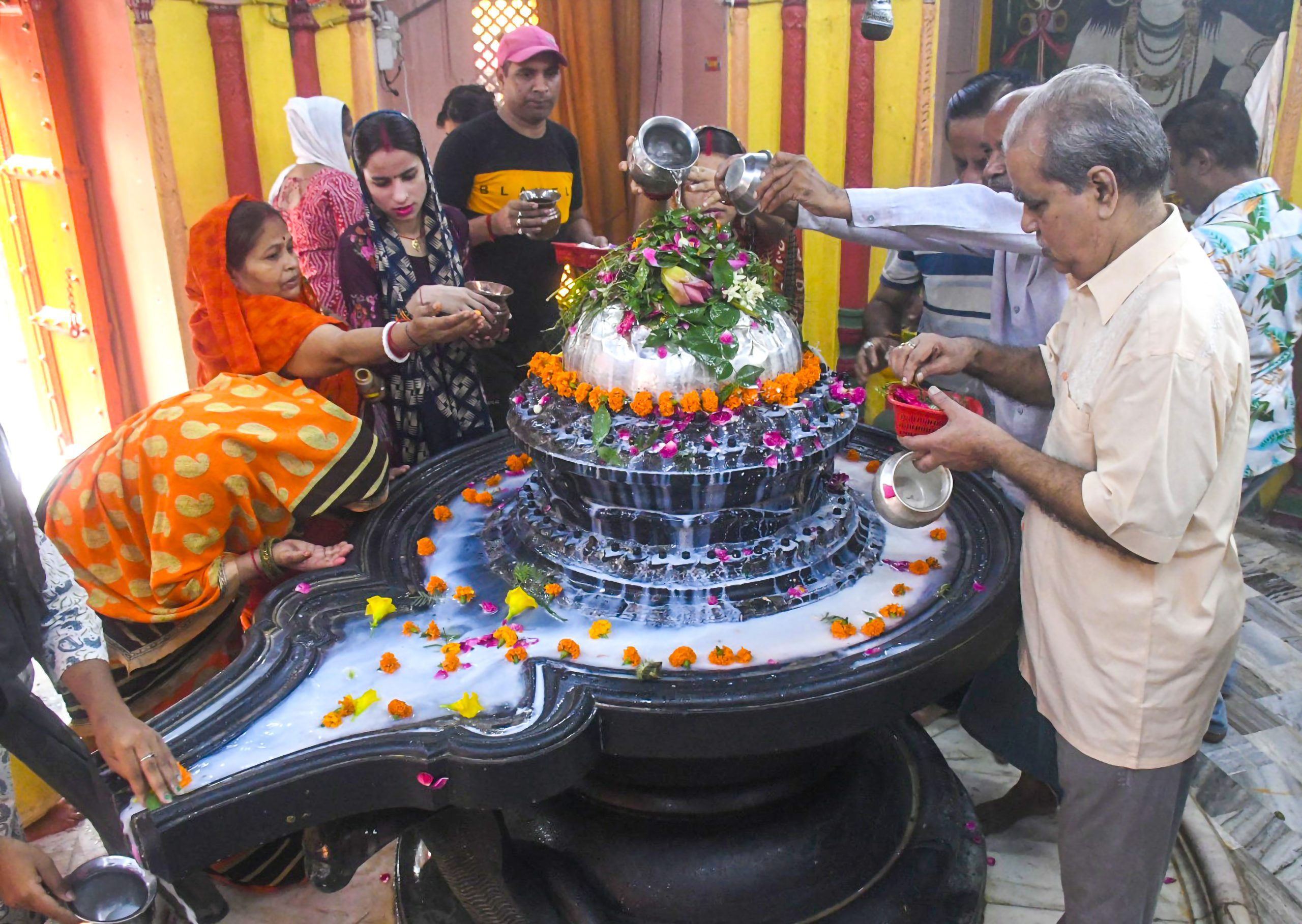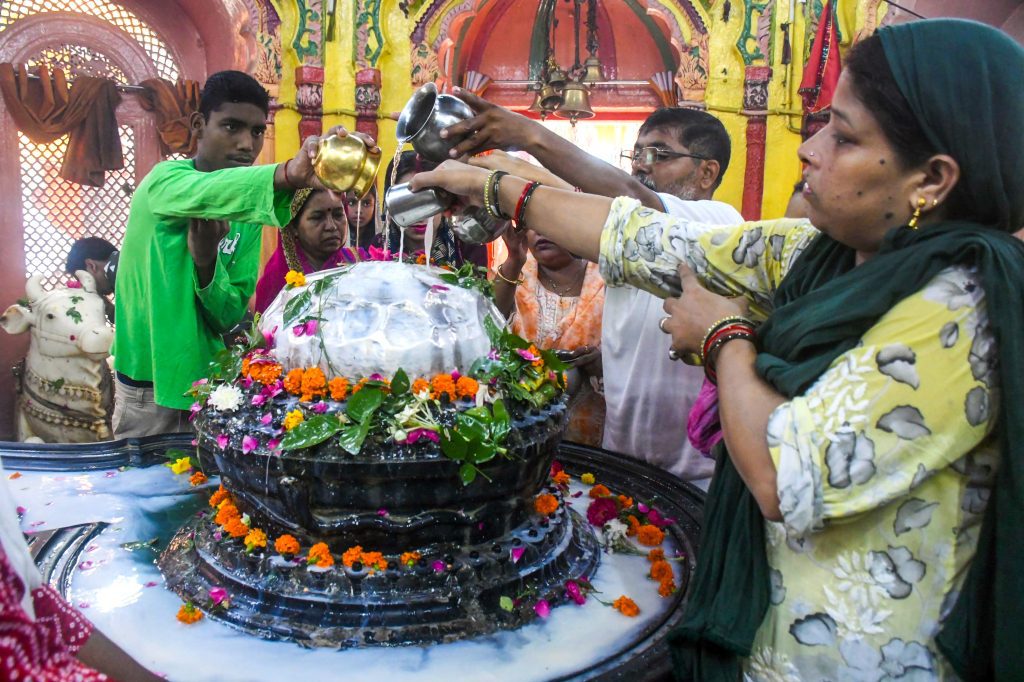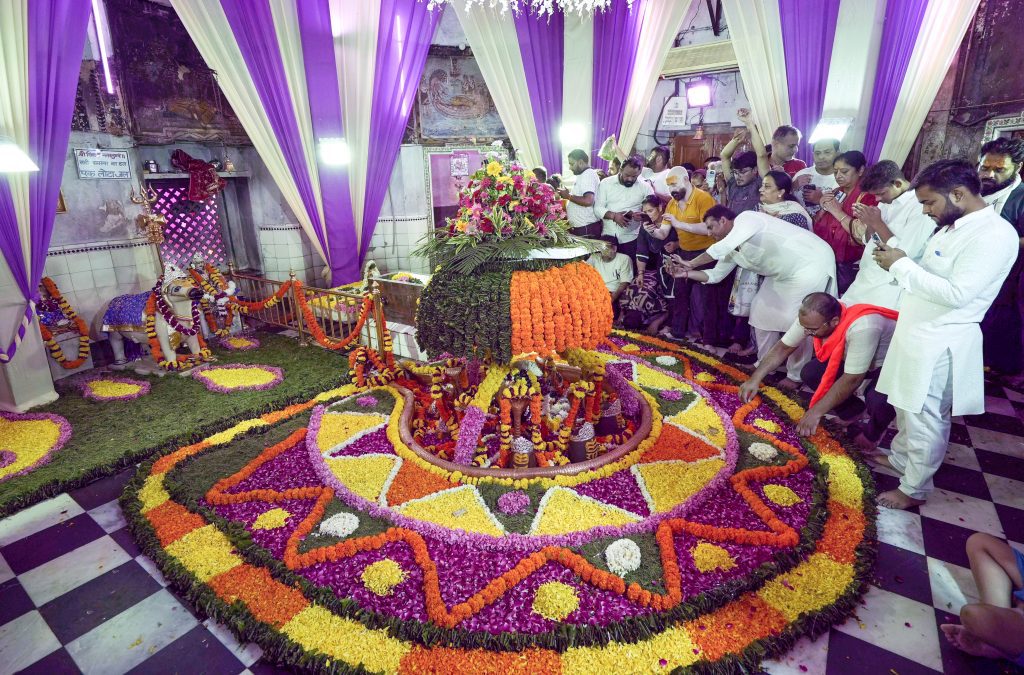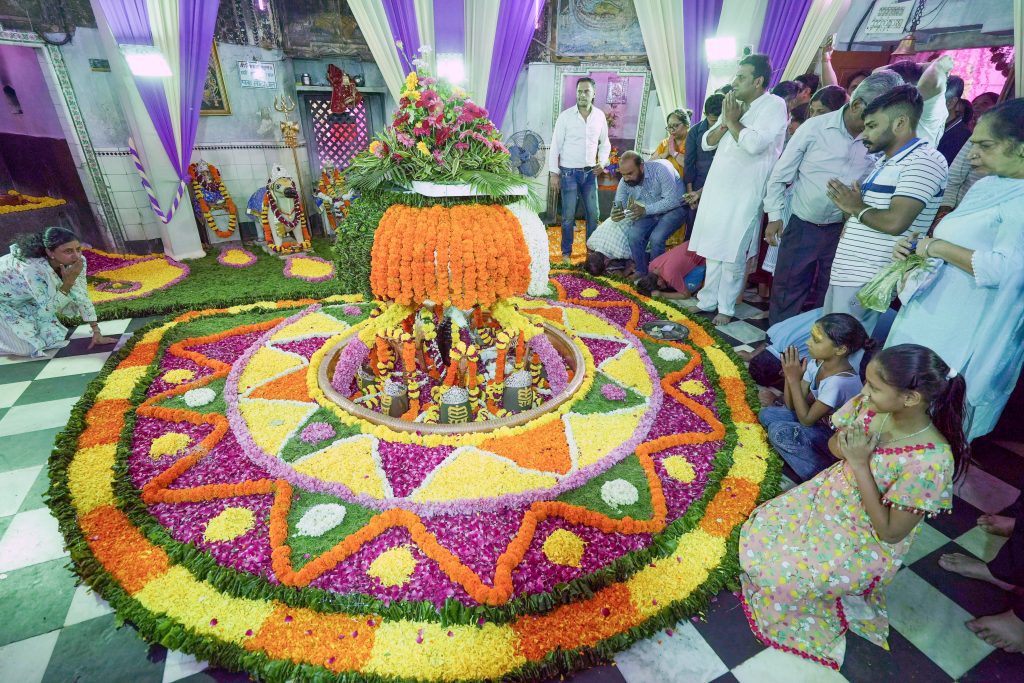A wave of devotion swept across the country on Wednesday as devotees gathered at Shiva temples to mark the auspicious occasion of Shravan Shivratri with jalabhishek and prayers.
Pilgrims, who undertook the annual Kanwar Yatra, offered holy Ganga water to Shivling at nearby temples.
Shravan Shivratri is considered one of the most sacred days to perform jalabhishek and offer reverence to Lord Shiva. Regarded as the second most important festival dedicated to Lord Shiva after Maha Shivratri, the day holds immense spiritual value.
Although the entire month of Sawan is devoted to Lord Shiva’s worship, this Shivratri holds a special place in the hearts of devotees. According to scriptures, prayers and rituals performed on this day lead to spiritual upliftment and the fulfillment of wishes.
Major Shiva temples organized special pujas and facilitated darshan for the devotees on the occasion. Lord Shiva was ceremoniously anointed with sacred Ganga water, accompanied by the chanting of mantras since early morning on Wednesday.
Celebrations were particularly vibrant in the northern states of Uttarakhand, Rajasthan, Uttar Pradesh, Madhya Pradesh, Punjab, Himachal Pradesh, and Bihar.
In Uttar Pradesh, devotees began arriving at riverbanks from the early hours to take holy dips in the Saryu River. Shiva temples along the river were beautifully decorated. Security was tightened across the state to ensure the peaceful conduct of the festival. Long queues of devotees formed outside temples before dawn.
In Varanasi, an overwhelming crowd thronged the Kashi Vishwanath Temple to offer prayers.
“The faith in Kashi is truly boundless. I had long desired to come here, and now I finally had darshan of Mahadev. I feel truly blessed,” said one devotee.
Another devotee shared, “We’ve been standing here for four hours, but our enthusiasm is high. We will wait as long as it takes to have darshan inside the temple.”
In Ghaziabad, a large number of Kanwariyas arrived at the Dudheshwarnath Mahadev Temple to perform jalabhishek.
Mahant Narayan Giri told reporters, “The significance of Shravan Shivratri lies in the legend of the Samudra Manthan. When deadly poison emerged from the ocean, Lord Shiva consumed it. It is said that crores of deities performed abhishek on Lord Shiva to ease his suffering. Since ancient times, the tradition of offering jal at Dudheshwarnath continues.”
In Prayagraj, devotees took a holy dip at the Sangam and used the sacred waters for jalabhishek rituals.
“This is the Shivratri that falls in the month of Sawan. On this day, Lord Shankar is offered jalabhishek and panchamrit abhishek. Each offering has its own significance—some offer oil, some Ganga water, some water infused with belpatra. The form of abhishek varies with each devotee’s intention,” said a devotee.
In Uttarakhand, large crowds gathered at the historic Daksheshwar Mahadev Temple – believed to be the abode of Daksh Prajapati, father of Goddess Sati.
“We are here today at the temple, which is considered the home of Lord Shiva’s in-laws. It is believed that jalabhishek performed here pleases Lord Shiva. According to holy texts, Lord Shiva governs the world from here, and we truly feel his divine presence,” said a devotee.
In Delhi, the Kalkaji Temple witnessed a heavy footfall of devotees. A beautifully adorned idol of Lord Shiva was installed, and jalabhishek was performed with devotion.
Peethadheeshwar of Kalkaji Temple, Surendranath Avadhoot, told IANS, “The month of Shravan holds special significance for worshipping Lord Shiva. This year, Shravan Shivratri falls on July 23. Devotees performed jalabhishek at temples across the country. The auspicious muhurat for the ritual began at 3:35 a.m., as per scriptures.”
He added, “During Samudra Manthan, when a deadly poison emerged threatening all creation, Lord Shiva drank it to save the universe, turning his throat blue and earning the name Neelkantha. Offering water to the Shivling honours this sacrifice and is believed to soothe his pain.”
As the day progressed, devotion continued to flow across the nation, with chants of “Har Har Mahadev” echoing through temple premises, reaffirming the timeless bond between the devotees and their beloved Mahadev.
(With inputs from IANS)

















